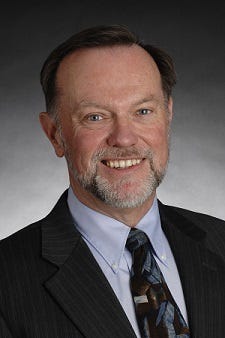During the past few weeks I had had the good fortune to return to Lubbock to teach a Maymester course on Africa in the 21st century. Having been absent for the past three years working in “The Swamp,” it was inspirational to be reminded of the positive attributes of West Texas, which represent the very forces which made America into the world’s leading nation.

The economic vibrancy is immediately apparent, from the exponentially growing housing developments to the new commercial corridors and businesses sprouting like mushrooms throughout the city. Local governments actively provide an environment which encourages business start-ups, builds streets and roads in front of growth, not after, thus preventing the types of squabbles which cripple most cities which suffer from “don’t build anything, anywhere” types. Area municipalities also have excellent public schools and maintain secure environments for their citizens.
But it’s at the individual level where this region truly exemplifies the historic American spirit. Despite Mother Nature’s occasional gut punches to the region’s communities – where agriculture remains a sizable chunk of the economy, in the form of hail, tornadoes, and periodic droughts – local residents display a universal spirit of independence, resilience, can do-ism, and eternal optimism in the future. When disaster strikes – whether to an individual neighbor or the entire community (as with the 1970 devastating tornado which I survived as a student) – neighbors and communities mobilize to help, without waiting for governments to arrive to provide assistance.
My greatest admiration, though, is for the element of common sense which still remains here in abundance; perhaps one of the last places in the US where it has not gone extinct. I was reminded of this when asked by several people how “Washington” (the Federal Government) could advocate/do such and such – since it was against all common sense. Sadly, I had no answer. This was the reason – when I started my position as Assistant Secretary of State – I told my staff that before agreeing to pursue any policy, issue a statement or make a decision, I had to run it through the filter of “could I explain this to the good folks of West Texas without sounding ridiculous.”
It doesn’t take long for visitors to pick up on West Texas’ virtues and attractions. During my time at Texas Tech University we brought a number of distinguished visitors, both domestic and international, to Lubbock. Immaterial of their nationality, or politics, they all left incredibly impressed, even after the shortest of visits. One of my favorites was the Nigerian Ambassador, who asked me to pull off the road on the way in from the airport, so he could examine first-hand how an oil well, windmill and cultivated crops can co-exist productively in the same field. The region’s cutting edge agricultural technology, diverse energy, world-class medical and educational facilities, unbridled enterprise, and unsurpassed quality of life all impress. But again, it’s the people who count the most. Our visiting African Mandela Fellows – whose program included “ride alongs” with Lubbock police and attending a city council meeting – couldn’t believe the dignity and respect these officials showed in dealing with their fellow citizens. May the spirit of West Texas not be defeated in these crazy times and serve as a model for the rest of the nation when sanity returns.
Ambassador Tibor Nagy was most recently Assistant Secretary of State for Africa after serving as Texas Tech’s Vice Provost for International Affairs and a 30-year career as a US Diplomat.





More Stories
U.S. charges FTX founder Sam Bankman-Fried with criminal fraud
Time series forecasting with XGBoost and InfluxDB
Full-stack engineering is one-third as good